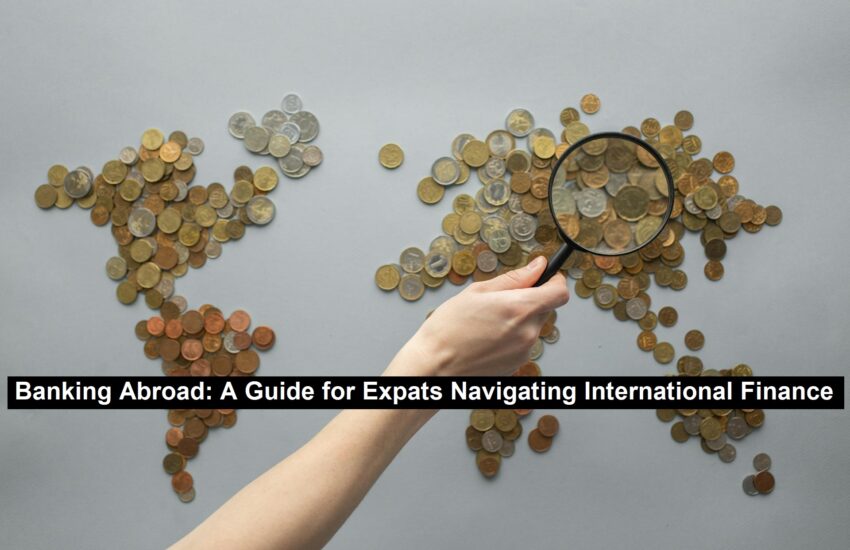Moving abroad is an exciting adventure, but it also comes with its own set of financial complexities, which can be confusing in the country you are from, never mind the one you are moving to. This leaves you with a whole new rulebook to follow and it can be intimidating and confusing because times like these, don’t always make it easy. Navigating international banking, currency exchanges, and tax implications can feel overwhelming for everyone, so you are not alone. That is why we found it important to address the issue and create a place you can come back to for information.
This guide will help you understand the essentials of banking abroad, ensuring your financial transition is smooth and stress-free.
Opening a Bank Account Abroad
Opening a local bank account in a new country is often the first step to managing your finances in a new country. You will need one before you start your job and some visas ask for you to have a local bank account with a certain amount of money so this is key to getting this open and set up before you go through the visa processes, which is good to know.
Research Requirements
Each country has different requirements and eligibility when opening a bank account; this will likely depend on your job role, income and credit history. Research what documents you’ll need, such as your passport, visa, proof of address, and sometimes a local tax identification number. There are some banks, like Revolut, that work internationally but are not necessarily as official or secure as others.
Choose the Right Bank
If you are spoilt for choice with banks, then you should consider factors like fees, accessibility, online banking features, and customer service in English (if needed). You should consider putting your financial health first and get the most from interest rates and so forth. This semi-falls under research but was worth mentioning.
Read: Futures Contracts: Managing Volatility with Strategic Investment Tools
Explore Digital Banks
Digital banks like Revolut, Wise, and N26 offer convenient international banking solutions with low fees and easy online account management, so it’s easy to transfer money back home and to kind of have the best of all worlds. These can be excellent for expats, such as digital nomads who travel frequently or need to manage multiple currencies. Especially as the world is becoming more card-orientated; this works out well when paying with your wise, revolut card and so forth.
Managing Currency Exchange
Currency fluctuations can significantly impact your finances; while it might seem inconvenient and annoying, it’s just how it goes; however, there are ways to manage it that can lessen the blow. Here’s how to manage them effectively.
Avoid Airport Currency Exchange
If you do decide to get local cash out before your travels, I would suggest getting it before you go, meaning you find where it’s best locally and at all costs avoid doing it at the airport. They are known for having the worst exchange rates and if you want better, be sure to do it way before.
Set Up Rate Alerts
Stay informed about currency fluctuations and make exchanges when the rates are favourable. This can be through setting alerts from certain websites, accounts on social media platforms and so forth to keep you in the loop on topics that interest you without having to go looking for the information if that makes sense.
Digital Banks
As mentioned above, the likes of Wise and Revolut are digital international banks, so when you convert money, it’s usually at great rates, so this is a great international banking.
Tax Implications for Expats
As an expat, you may have tax obligations in both your home country and your host country.
Research Tax Treaties
Many countries have tax treaties that prevent double taxation. While this will depend on your visa type, for example, if you are travelling on a tourist visa, or even a short-stay tourist, you can claim back tax on everything you purchased. Another example includes if you are working in the UK, then the UK has full rights to that income tax, if your home country is trying to claim it, then the foreign tax credit method would be viable and save you from being taxed double.
For more information, I would strongly recommend you go visit the official government website of that country and see what’s in place.
Consult a Tax Professional
A tax advisor specialising in international tax can help you understand your obligations and minimise your tax burden. This is especially useful if you are a freelancer, sole trader and so forth, where it becomes even doubly more difficult to understand and calculate the right amount. While this will cost a little extra, it’s just extremely easy
Keep Accurate Records
Maintain detailed records of your income and expenses for tax purposes. This is extremely important, as mistakes are always made, especially with tax. For example, last year I was refunded 800 pounds in tax; that thankfully got refunded to me but it still goes to show that mistakes happen and keeping records ensures you are entitled to claim back overcharges.
Conclusion
Banking abroad requires careful planning and research. By understanding the essentials of international finance, you can ensure a smooth financial transition and make the most of your expat experience. Remember to stay informed, seek professional advice when needed, and embrace the financial opportunities that come with living abroad.
For those looking to make a long-term commitment to their new country, understanding the path to indefinite leave to remain is also crucial. This status offers security and stability, making your financial planning and overall expat experience even more rewarding. It signifies a significant step in your journey, allowing you to establish deeper roots and fully integrate into your adopted home.

